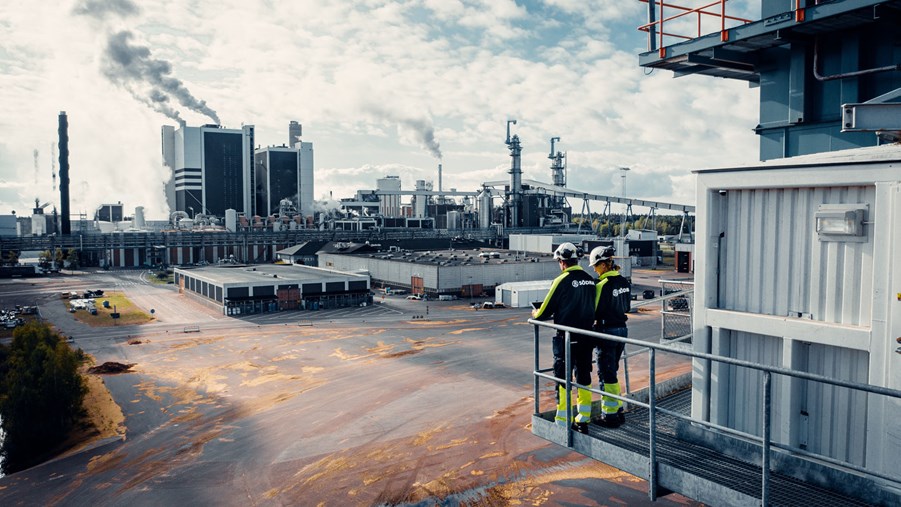
International forest industry group Södra has launched an international initiative to explore opportunities associated with carbon capture and storage of biogenic emissions, known as BECCS, in a project could play a key role in the climate transition.
Under the name Njord Carbon, Södra, together with venture capital company Verdane Capital and Norwegian state energy company Equinor, hopes to create a platform for large-scale capture and storage of biogenic carbon dioxide. The goal is for Södra to be a commercial innovator and in the future create a marketplace for negative emissions.
“We have considerable emissions of biogenic carbon dioxide suitable for BECCS. With permanent and traceable carbon dioxide storage, we can offer high-quality negative emissions to companies that are as ambitious as Södra is in terms of reducing climate impacts. Buyers must feel confident that carbon dioxide is actually removed from the atmosphere. Ultimately, we also see opportunities to use captured carbon dioxide for new climate-smart products,” says Andreas Hörnfeldt, Head of New Business at Södra Innovation.
There is available technology to separate carbon dioxide from flue gas and compress it into liquid form. Liquid carbon dioxide can then be transported by ship to the North Sea and pumped into boreholes at depths of up to several thousand metres. In sedimentary rocks far below the seabed, carbon dioxide is mineralised and eventually becomes part of the bedrock. This process, known as Bioenergy Carbon Capture and Storage (BECCS), creates a long-term carbon sink.
“The technical solutions exist, but we need to develop the entire value chain from emissions source to the location of permanent storage, which is also the aim of the Njord Carbon initiative. We’re still at an early stage and it probably won’t be until the end of the decade before large-scale management of BECCS is in place,” says Hörnfeldt.
Energy is essential for CCS and CCU
Carbon capture requires large amounts of energy and the step from capture to using carbon dioxide requires additional energy, most likely with the supply of substantial amounts of electricity from external sources.
“The energy balance at our mills is an important piece of the puzzle in terms of carbon capture. We need to look carefully at how BECCS aligns with the Södra Group’s future operations,” says Hörnfeldt.
Separated carbon dioxide can be used as a raw material for new products, for example so-called e-fuels that replace petrol and diesel or used directly in existing industrial processes. The process of bio-CCU (Bioenergy Carbon Capture and Utilisation), returns carbon to the cycle more rapidly, while at the same time oil and other fossil carbon sources can be replaced with carbon from renewable forests.
“Södra strives continuously to increase the value of its members’ forests and increase its contribution to the climate transition. We need to think circularly, and finding applications for captured carbon dioxide is interesting. Bio-CCU is still relatively expensive and not yet commercially viable. That’s why we’re looking at BECCS and permanent storage in the first place. Removing carbon dioxide from the atmosphere is necessary. However, ultimately, it would be better if we could supply renewable carbon dioxide as a raw material for new climate-smart products and help keep fossil raw materials in the ground for good,” says Hörnfeldt.
Interest for carbon capture in the forest industry
Actors in theforestry industry could benefit from BECCS, says Johan Bruce, Energy Director at Swedish Forest Industries:
“Carbon capture and storage are coming closer and closer to being realized at scale. A growing number of paper mills are also net producers of electricity, which makes BECCS even more attractive. For the processes to make economic sense, large point emissions and access to ports that can receive the ships needed to transport liquid carbon dioxide to final storage are needed. Given that there will be sufficient amounts of fossil-free electricity at reasonable prices, we will probably see greater investment in BECCS and perhaps also bio-CCU in our industry.”